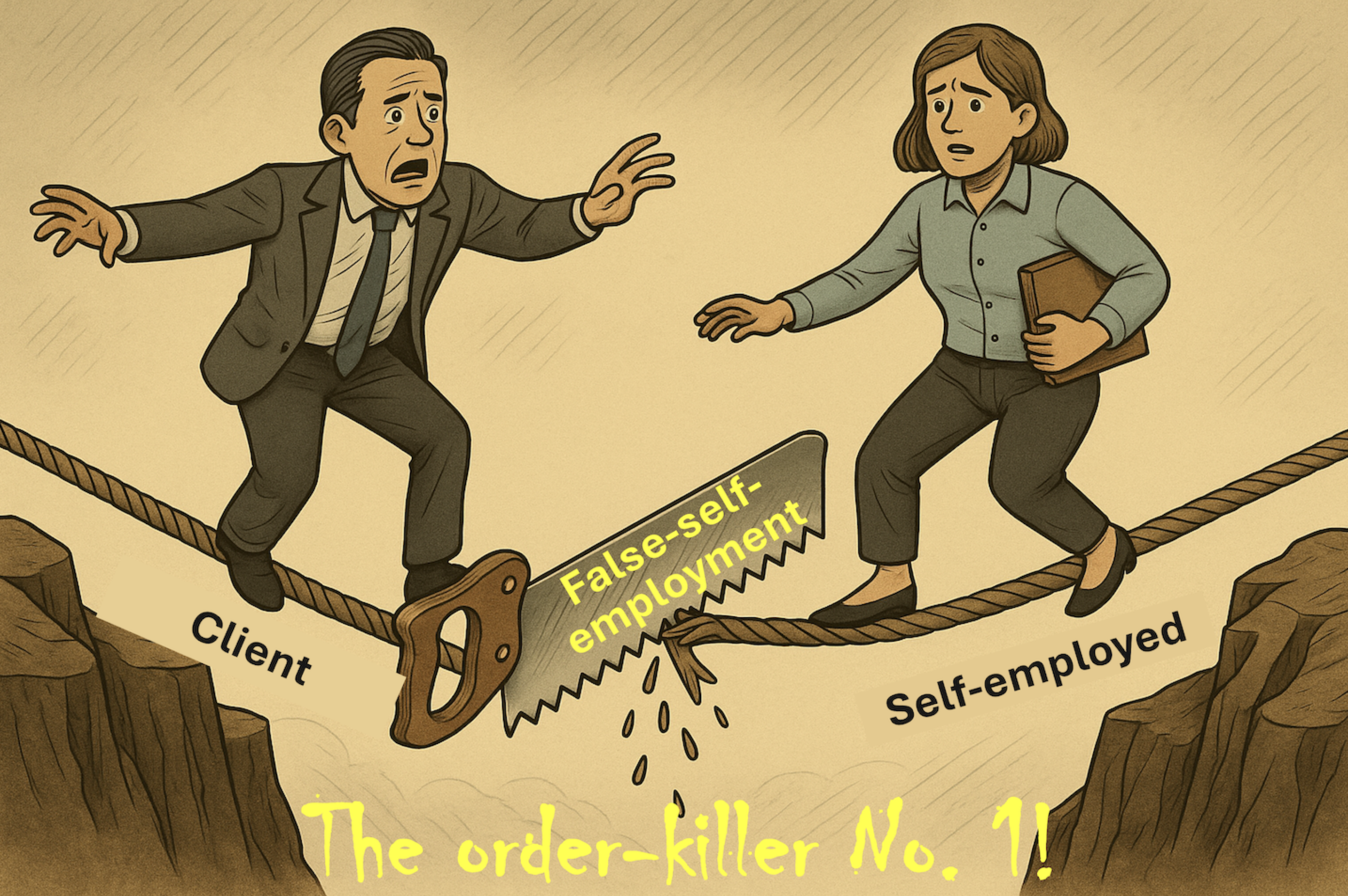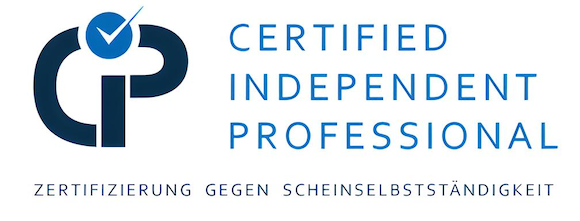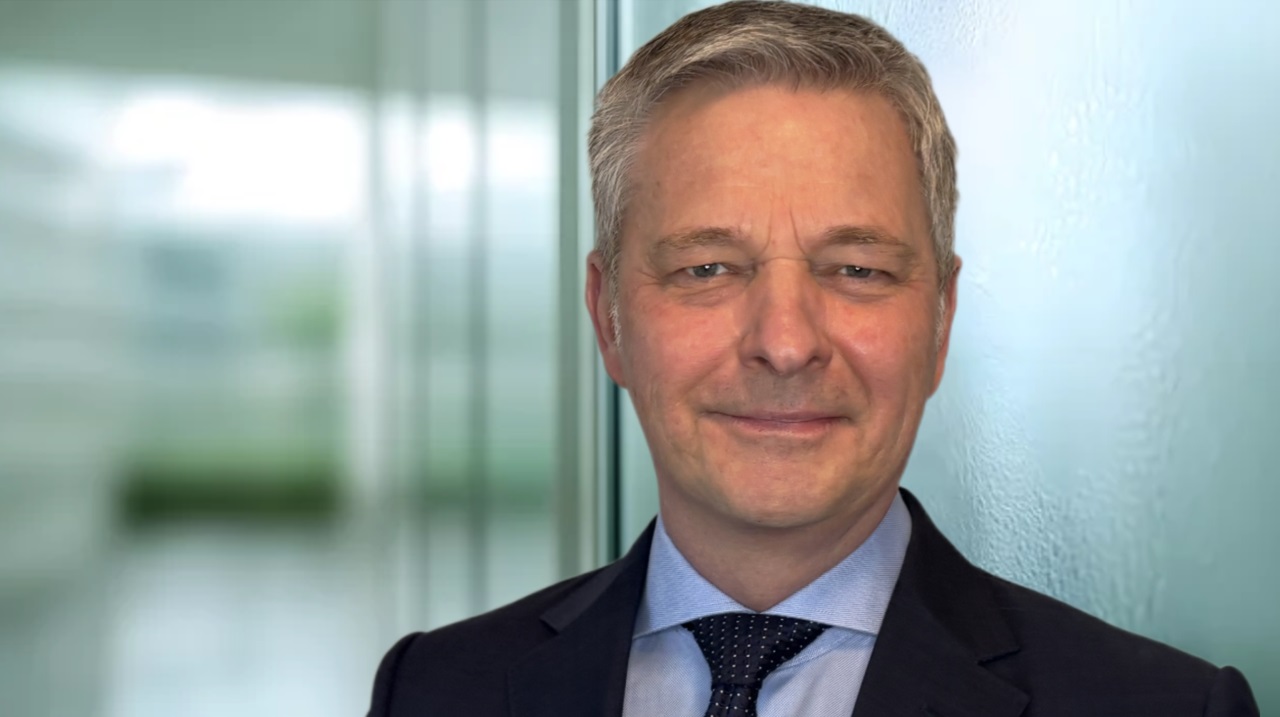False self-employment: The paradox that it mainly affects those who are NOT falsely self-employed
(Declining freelancer numbers in Germany and how freelancers, clients, and agencies can reverse this negative trend with CIP.) | Author: Gernot Labs, Founder & CEO of CIP Certified Independent Professional GmbH
While the proportion of self-employed people in the EU workforce has remained stable at around 8-9% since 2015, the proportion in Germany has fallen from 5-6% to only around 4%! This is a worrying trend for an economy facing major transformation challenges. Freelancers form the backbone of many digitization, IT, and transformation projects. Freelancers overcome many challenges, but complicated regulations and high risks (especially false self-employment) cause many to give up. Even professionals with many years of experience can suddenly and unintentionally meet the criteria for false self-employment in every new assignment and even during their project assignment, putting their livelihoods at risk.
Freelancers are exposed to another problem that many completely underestimate. Germany's “No. 1 job killer”: the fear of many clients of false self-employment. And tragically, this affects precisely those who are not false self-employed.
 Illustration on the topic of false self-employment
Illustration on the topic of false self-employment
 Illustration on the topic of false self-employment
Illustration on the topic of false self-employment1. The paradox of false self-employment
“False self-employment doesn't affect me. I'm not false self-employed!” is often a fallacy with fatal financial consequences. Hundreds of thousands of genuinely self-employed people are under general suspicion. Companies avoid freelancers for fear of additional payments and deterrent penalties. Project brokers waste a lot of time searching for professional candidates, only to hear later that the client has “found an internal solution” after all. Freelancers lose project opportunities simply because someone in the purchasing or legal department has reservations about hiring an external contractor.
The result: Genuine self-employed people have to accept project offers via “AÜ” or the “Swiss model” and lose the advantages of their self-em ployed status. Project providers lose potential candidates.
2. How CIP came about – and why it helps everyone
CIP came about after all efforts to change the law failed to bring about any improvements. At CIP, we consider a system to be unfair if regulations are so complicated and open to interpretation that even experienced professionals can become pseudo-self-employed with every new assignment—even suddenly while performing their services in the middle of a project—and are unable to recognize this themselves. We consider it equally unfair that clients should be liable for negative changes in the external environment, even though they usually have no control over them.
 CIP Logo
CIP Logo
There is a clear lack of measurable criteria for determining false self-employment. Who came up with a procedure whereby every single contractual relationship is so unclear in terms of various dependencies that courts have to decide on it (over months/years) because the issues relevant to the judgment are only clarified at such a late stage? Why are these criteria and complicated dependencies not clarified much earlier? Why do freelancers have the burden of proof and find themselves in the role of defendant (without adequate prior information)?
 CIP Logo
CIP LogoThere is a clear lack of measurable criteria for determining false self-employment. Who came up with a procedure whereby every single contractual relationship is so unclear in terms of various dependencies that courts have to decide on it (over months/years) because the issues relevant to the judgment are only clarified at such a late stage? Why are these criteria and complicated dependencies not clarified much earlier? Why do freelancers have the burden of proof and find themselves in the role of defendant (without adequate prior information)?
This is exactly where CIP comes in: Our online questionnaire provides explanations in understandable language with practical examples and helps self-employed people identify potential risks so that they can be discreetly and quietly eliminated before any damage can occur. That's fair!
An algorithm evaluates legally relevant criteria, takes into account findings from court rulings, and creates a certificate that explains why there is no risk of false self-employment in the respective contract constellation. No blanket assessment, but a continuously updated evaluation of self-employed status.
Those who proactively check before something happens can effectively counter accusations of gross negligence.
3. For freelancers: Optimal security that builds trust
For freelancers, CIP certification means more jobs, higher capacity utilization, increased revenue, less time spent on customer acquisition, and optimal protection against additional payments that often threaten their livelihood. Our hotline does not provide legal advice, but it does help you to position yourself professionally. This shows your clients that your interests are also being protected – a strong signal in a competitive market.
Only once certification has been successfully completed is there a charge. Anyone who first has to eliminate risks during initial certification pays nothing. And ZEIT.IO members receive an additional 10% discount on their first certification.
4. For project intermediaries and end customers: relief instead of risk
Companies and intermediaries benefit twice over: they demonstrably fulfill their control obligations with minimal effort—and avoid high additional claims, penalties, and audit stress. In addition, CIP certificates can be used as an acquisition tool:
- Proof that you have fulfilled your control obligations
- Door opener for companies that have not previously hired freelance candidates
- Alternative to the unpopular temporary employment model / Swiss model=more self-employed candidates
- Strong argument in fee negotiations – end customers save on internal effort
- Increased confidence in professionalism and compliance
- Competitive advantage over providers without a quality seal
Those who use CIP expand their candidate market because more genuine self-employed individuals are willing to be listed again, and their customer base because more companies hire freelancers.
More information for project brokers: Additional information for subcontractors and brokers | CIP
5. Conclusion: Working together instead of in an environment of fear of government audits
We did not create the laws surrounding so-called “false self-employment,” but have long advocated for a change in the law—without success. CIP was created because we now need a solution: a platform that optimally protects freelancers, intermediaries, and end customers from the damage caused by false self-employment—with the opportunity to eliminate risks instead of fearing imprisonment and mutual distrust.
Gernot Labs
This article was written by Gernot Labs.
 Gernot Labs
Gernot Labs
Gernot Labs is the founder and CEO of CIP Certified Independent Professional GmbH in Munich and also managing partner of a management consultancy. Prior to this, he worked as a freelance interim manager for 20 years. CIP was awarded the Innovation Champion 2024 award by FOCUS magazine for this unique and innovative solution.
 Gernot Labs
Gernot LabsGernot Labs is the founder and CEO of CIP Certified Independent Professional GmbH in Munich and also managing partner of a management consultancy. Prior to this, he worked as a freelance interim manager for 20 years. CIP was awarded the Innovation Champion 2024 award by FOCUS magazine for this unique and innovative solution.
If you are interested, please send an email to: info@cip-scheinselbststaendig.de.